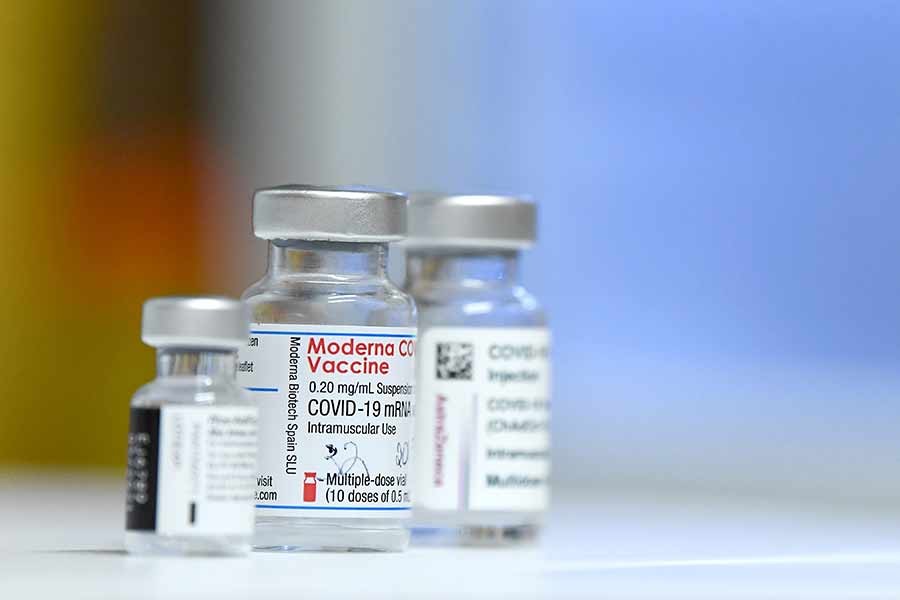Moderna Inc said on Wednesday it will ask regulators to authorise its COVID-19 vaccine in children younger than 6 years old based on data showing it generated a similar immune response to adults in its clinical trial.
The omicron variant of COVID-19 was predominant during Moderna's pediatric trial, and the drugmaker said two doses were around 38 per cent effective in preventing infections in 2 to 5-year-olds and 44 per cent effective for children 6 months to under 2 years old, reports Reuters.
It said these figures were consistent with the lower effectiveness against omicron seen in adults who had received two doses of its vaccine.
Moderna's vaccine could be the first authorised shot for children under the age of 5 in the United States, and many parents of young children have been waiting on a vaccine.
A rival shot made by Pfizer Inc and Germany's BioNTech SE is authorised for use in children 5 and older. But their trial results for 2- to 4-year olds showed a weaker immune response than in adults, forcing the trial to be extended to test the third dose. Results are expected in April.
"Given the need for a vaccine against COVID-19 in infants and young children we are working with the US FDA and regulators globally to submit these data as soon as possible," Moderna Chief Executive Stephane Bancel said in a statement.
Dr Jacqueline Miller, a top scientist at Moderna, told Reuters the company was "a couple of weeks away" from filing for authorisation for the age group in the United States, Europe and elsewhere.
GENERALLY WELL-TOLERATED
It is not clear how many US parents will vaccinate their children in the age group. Only 27 per cent of 5 to 11-year-olds in the country are fully vaccinated, and COVID-19 is generally milder in children than adults.
There were no severe cases in Moderna's pediatric trial for either vaccine or placebo participants.
Moderna said the shots, spaced four weeks apart, were generally well-tolerated in the age group and the majority of side effects experienced were mild or moderate.
The dose size tested was 25 micrograms - a quarter of the dose that adults receive for each of their first two shots.
There have been some concerns about the size of the dose. By comparison, the dosage of Pfizer and BioNTech's vaccine - which uses similar messenger RNA technology - was 10 micrograms for 5 to 11-year-olds. They are testing 3 microgram doses for children younger than 5.
"FDA did ask us to evaluate lower doses and we intend to do so," said Moderna's Miller. "However, we believe that the current data really support the dose selections that we have made in this age group... We are confident in the dose that we've chosen."
Moderna's vaccine is approved by the FDA for use in adults 18 and older. But it has yet to be approved for 6 to 17-year-olds in the United States despite gaining approval for that age group in Australia, Canada and the European Union. The United Kingdom and Switzerland have allowed the vaccine to be used in 12 to 17-year-olds.
US regulators have asked the company for more safety data and the FDA also said it needed additional time to evaluate the risk of a type of heart inflammation called myocarditis after vaccination in the age group, a rare side effect that has primarily affected young males.
Moderna says it plans to update its emergency use authorisation filing in 12 to 17-year-olds with more data, and has started the process for 6 to 11-year-olds.
The company also said it plans to study a booster dose for all pediatric populations, including a booster that combines a vaccine designed to tackle the omicron variant of the virus with its original COVID-19 vaccine.


